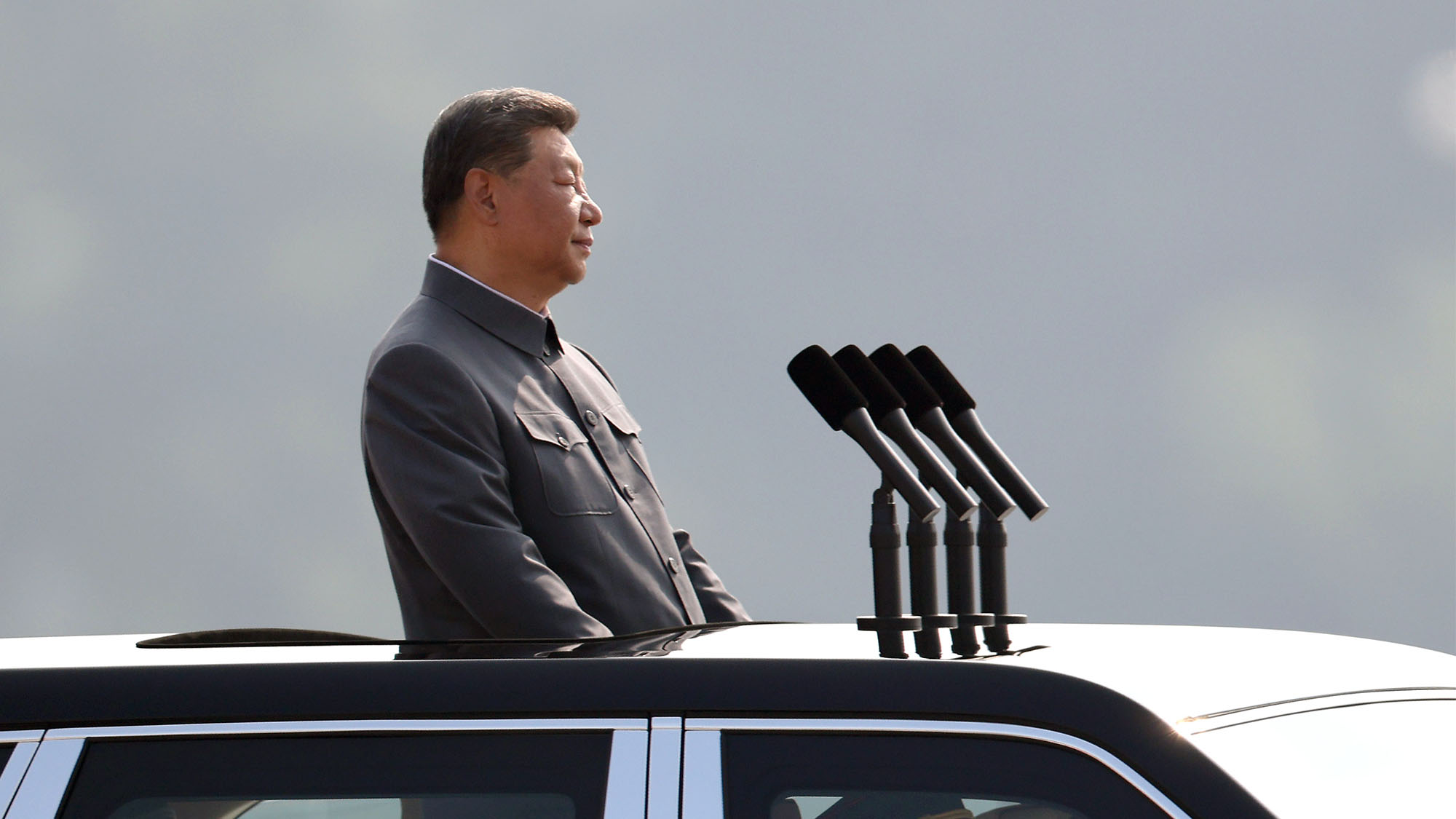Who wouldn't want unlimited vacation days? (You, probably)
More and more companies are offering the dream scenario of limitless paid holiday time. Don't buy it.


A growing number of American companies are embarking on what seems like a radical experiment in human resources: Offering employees an unlimited number of paid vacation days. Those companies — many of them small tech startups, but also big guns like Netflix, Best Buy, and financial analysis firm Morningstar — have some very good reasons for dishing out limitless vacation.
For starters, says Lotte Bailyn at Quartz, "numerous studies have found that time away from the office and more frequent vacations lead to greater productivity, improved job performance, and lower levels of stress." So more vacation equals a refreshed, creative, and resourceful office. Not having to track vacation days, or pay out employees for unused days, can also save a company time and money. And current and prospective employees generally appreciate it when their company treats them like grown-ups.
Mike Southern, the head of human resources at software company PatientKeeper, points out that his company doesn't monitor employees to make sure they don't drink beer in the middle of the day, so why not trust them to manage their vacation time? "You just treat people like professionals and like adults," he tells The Boston Globe, "and 99 percent of the time they'll act that way."
The Week
Escape your echo chamber. Get the facts behind the news, plus analysis from multiple perspectives.

Sign up for The Week's Free Newsletters
From our morning news briefing to a weekly Good News Newsletter, get the best of The Week delivered directly to your inbox.
From our morning news briefing to a weekly Good News Newsletter, get the best of The Week delivered directly to your inbox.
At a time when many employees work considerably more than 40 hours a week, not counting time laboring off-the-clock on their smartphones, there's also something fair-sounding about not nickel-and-diming them over their holiday time. Here's how Netflix explains its open-ended vacation policy (starting at slide 67):
We don't track hours worked per day or per week, so why are we tracking days of vacation per year? We realized: We should focus on what people get done, not on how many days worked. Just as we don't have a 9 a.m. to 5 p.m. workday policy, we don't need a vacation policy.... There is also no clothing policy at Netflix, but no one comes to work naked. Lesson: You don't need policies for everything. [Netflix]
That's what's in it for employers. For employees, the benefits seem self-evident: Who wouldn't want to take as much vacation time as they desire? After all, by Labor Day, says Jena McGregor at The Washington Post, "the two weeks of vacation you're granted by the sticklers in H.R. have already been used — or reserved — for the kids' spring break, a long weekend earlier this summer, the holidays, and doctors appointments or cable-guy emergencies."
But it's not as simple as all that. In many cases, says The Christian Science Monitor in an editorial, "only the employer benefits are real, and the employee benefits are mostly imaginary." Here are three reasons unlimited vacation probably isn't anywhere near as great as it sounds on paper:
1. No vacation policy = a "no vacation" policy?
A free daily email with the biggest news stories of the day – and the best features from TheWeek.com
One of the hidden downsides of having basically no vacation policy is that it can actually discourage taking time off, says The Christian Science Monitor. That's why "some critics have even called it a 'no vacation' policy."
In a highly competitive, workaholic atmosphere, and without some guidelines as to what is normal or expected, employees may feel guilty about taking off any time at all. Are they slackers if they take two weeks? Three? Four? What's appropriate? Will others who take less vacation, or no vacation, be viewed more favorably? [Christian Science Monitor]
Most companies offering unlimited vacation probably really do want their employees to take ample time off. But "you can see how a young, hungry startup culture might turn 'unlimited' vacation into 'only as much vacation as you really need,'" says Eric Randall at Boston Magazine, "which quickly becomes 'we'll judge you for every vacation day you opt into, you coding monkey. Now back to work!'"
Companies are aware of this. To encourage taking time off, HubSpot has adopted an informal "two weeks to infinity" vacation policy, while Evernote has started offering $1,000 to every employee who takes a full week off to physically go on vacation (no "staycations"). Of course, Evernote CEO Phil Libin hasn't taken a vacation in years, notes Katie Johnston at The Boston Globe. "Not really leading by example there," says Boston Magazine's Randall.
2. The people offered unlimited vacation are the least likely to use it
Unlimited vacation policies won't work for every business, and it's very likely that "the firms that offer unlimited vacation do so because they're confident their employees won't choose to take much time off," says Matthew Yglesias at Slate. For example, "Slate pays me to create value for Slate through a mix of attracting readers, being helpful to colleagues, and, in some larger sense, being part of the Slate brand."
If I started taking half the year off, my traffic would plummet and I'd have a problem with the bosses.... If your employees have mission-oriented jobs then there's no need to mandate that they work specific hours of the day, days of the week, or weeks of the year. Their job is to do a good job, and giving them discretion about how much time to take off is a way of looking generous while knowing perfectly well that people won't actually take much time off. [Slate]
There's also a certain A-type personality prevalent among the jobs with limitless holidays, David DeLong, a workplace consultant and author, tells The Boston Globe. "The paradox is people who are successful and driven enough to land jobs in these companies are likely to be overly responsible and hard working, so that they're less likely to take the vacation even though it's there."
3. Most employees prefer finite, limited resources
People think of infinite choices as a positive thing, but especially in the workplace, "too much choose is restrictive and confusing," says Quartz's Lotte Bailyn. When it comes to vacation — and mutual fund options, for example — "in reality, less is more." Sheena Iyengar at Columbia Business School has found that when employees are given too many ways to invest their 401(k), "it overwhelms them to the point of paralysis," Bailyn notes.
Similarly, when vacation time is offered as an unlimited resource many people decide not to take advantage because it's too hard to figure out the right amount to take.... Unlimited vacation time may be more confusing than helpful. Many people, of course, could benefit from more time off, but employees need guidelines. [Quartz]
The sad thing is that numberless vacation days makes a lot of sense in the 21st century workplace, says The Christian Science Monitor. We've moved "rapidly away from a 19th-century assembly-line model, which required a 'shift' of employees on the site working shoulder to shoulder for a set period of time," and flexibility is being embraced by both employees and employers. But there's also something secure about knowing your allotted number of vacation days.
Someday totting up vacation days may seem as archaic to office workers as the sound of clacking typewriters or the sight of a uniformed attendant running the elevator. But workers may miss doing that vacation math all the same. [Christian Science Monitor]
Peter has worked as a news and culture writer and editor at The Week since the site's launch in 2008. He covers politics, world affairs, religion and cultural currents. His journalism career began as a copy editor at a financial newswire and has included editorial positions at The New York Times Magazine, Facts on File, and Oregon State University.
-
 The Week Unwrapped: Why is China clearing out its generals?
The Week Unwrapped: Why is China clearing out its generals?Podcast Plus, can the Conservatives win back the centre? And what’s gone wrong with Britain’s hearing aids?
-
 The week’s best photos
The week’s best photosIn Pictures A Viking festival, an inky fingerprint, and more
-
 6 homes with incredible balconies
6 homes with incredible balconiesFeature Featuring a graceful terrace above the trees in Utah and a posh wraparound in New York City
